Market Trends
Introduction
As we enter 2024, the Aircraft Galley Equipment Market is experiencing significant transformation driven by a confluence of macro factors. Technological advancements are reshaping the design and functionality of galley equipment, enhancing efficiency and passenger experience. Concurrently, regulatory pressures are compelling manufacturers to innovate in safety and sustainability, aligning with global environmental goals. Additionally, shifts in consumer behavior, particularly the demand for improved in-flight services and amenities, are prompting airlines to invest in modern galley solutions. These trends are strategically important for stakeholders, as they not only influence product development and operational efficiency but also play a critical role in enhancing customer satisfaction and brand loyalty in an increasingly competitive aviation landscape.
Top Trends
-
Sustainability Initiatives
The push for eco-friendly materials in aircraft galley equipment is gaining momentum, with companies like JAMCO Corporation leading the charge. Recent studies indicate that 70% of airlines are prioritizing sustainable practices, which is reshaping procurement strategies. This trend not only reduces environmental impact but also enhances brand reputation. Future developments may include the integration of biodegradable materials and energy-efficient appliances. -
Smart Technology Integration
The incorporation of IoT and smart technology in galley equipment is revolutionizing operations, as seen with Rockwell Collins Inc.'s advancements. Data shows that smart galleys can improve efficiency by up to 30%, optimizing inventory management and reducing waste. This trend is expected to expand, with predictive maintenance and real-time monitoring becoming standard features in future designs. -
Modular Design Trends
Modular galley systems are becoming increasingly popular, allowing for flexible configurations and easy upgrades. Companies like AIM Altitude are pioneering this approach, which can reduce installation time by 25%. This trend supports airlines in adapting to changing passenger demands and operational needs, with future designs likely to focus on even greater customization and scalability. -
Health and Safety Enhancements
In response to the COVID-19 pandemic, health and safety features in galley equipment have become paramount. Turkish Cabin Interior has introduced antimicrobial surfaces, which are now a requirement for many airlines. This trend is expected to persist, with ongoing innovations aimed at improving hygiene standards and passenger confidence in air travel. -
Increased Focus on Passenger Experience
Enhancing passenger experience through innovative galley solutions is a key trend, with companies like Diehl Stiftung & Co. developing equipment that allows for personalized service. Research indicates that 80% of travelers prioritize comfort and service quality, driving airlines to invest in advanced galley technologies. Future developments may include customizable meal options and improved in-flight service efficiency. -
Regulatory Compliance and Standards
Stricter regulations regarding safety and environmental standards are influencing the design of galley equipment. Governments are mandating compliance with new safety protocols, impacting manufacturers like KGBucher Group. This trend necessitates ongoing investment in R&D to meet evolving regulations, with future implications for product development cycles and certification processes. -
Cost Efficiency Measures
Airlines are increasingly focused on cost efficiency, prompting manufacturers to develop more economical galley solutions. Aerolux has introduced lightweight materials that reduce fuel consumption, which can lower operational costs by up to 15%. This trend is likely to continue, with future innovations aimed at balancing cost and performance in galley equipment. -
Collaboration and Partnerships
Strategic partnerships between airlines and equipment manufacturers are on the rise, fostering innovation in galley solutions. For instance, collaborations between Turkish Cabin Interior and various airlines have led to tailored equipment designs. This trend enhances product development and market responsiveness, with future partnerships likely focusing on co-creating sustainable and efficient solutions. -
Digital Transformation in Operations
The digital transformation of airline operations is influencing galley equipment design, with a focus on data analytics and operational efficiency. Companies like Zodiac Aerospace are leveraging big data to optimize galley layouts and workflows. This trend is expected to grow, with future developments likely incorporating AI-driven insights for continuous improvement in service delivery. -
Customization and Personalization
The demand for customized galley solutions is increasing, driven by diverse passenger preferences. Manufacturers are responding by offering tailored equipment options, as seen with JAMCO Corporation's bespoke designs. This trend not only enhances customer satisfaction but also allows airlines to differentiate their services, with future implications for more personalized in-flight experiences.
Conclusion: Navigating the Competitive Landscape Ahead
The Aircraft Galley Equipment Market is characterized by a dynamic competitive landscape, marked by both fragmentation and the emergence of innovative players. Regional trends indicate a growing demand for advanced solutions in North America and Europe, while Asia-Pacific is witnessing a surge in new entrants. Legacy manufacturers are leveraging their established reputations and extensive distribution networks, while emerging players are focusing on cutting-edge capabilities such as AI, automation, and sustainability to differentiate themselves. As the market evolves, vendors must prioritize flexibility in their offerings to adapt to changing airline requirements and consumer preferences. The ability to integrate advanced technologies will be crucial for leadership, as companies that can effectively harness AI and automation will likely gain a competitive edge in this rapidly transforming environment.


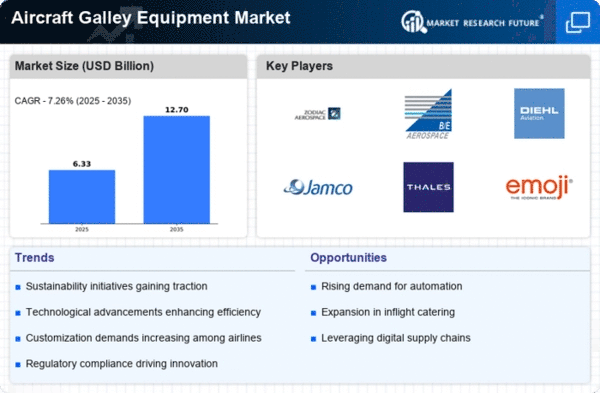
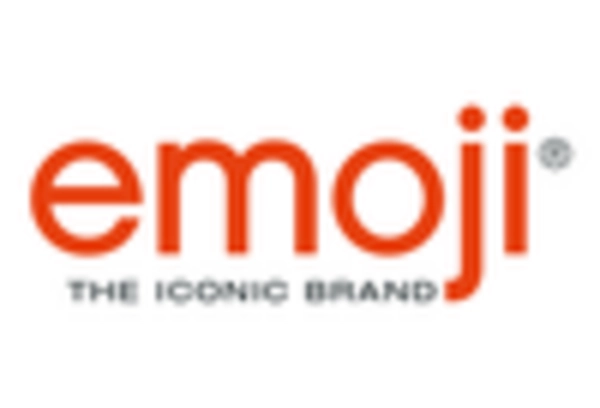
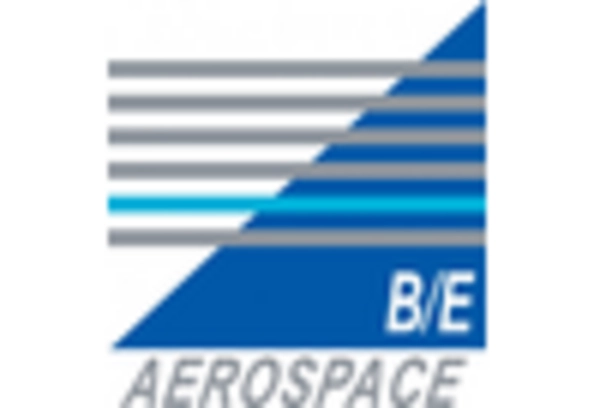

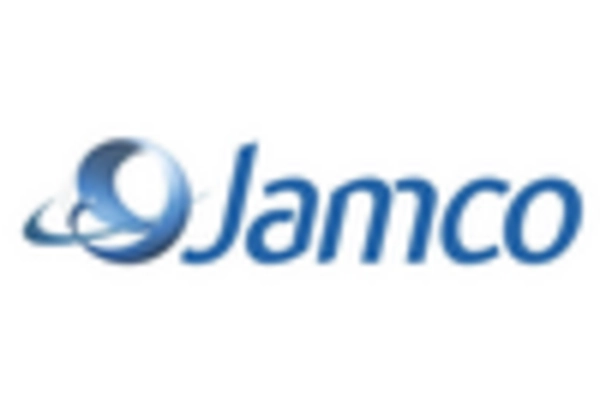

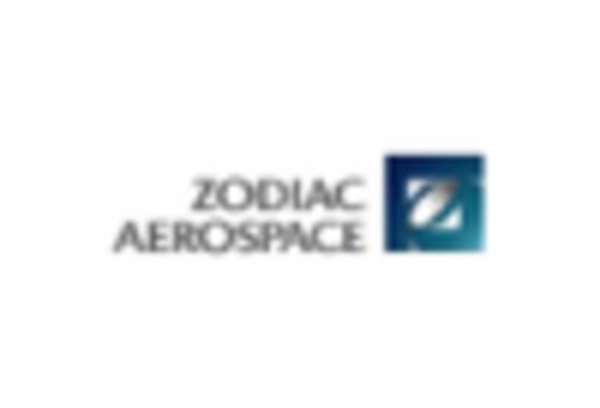









Leave a Comment